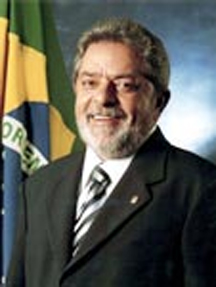BRASILIA, (Reuters) – Brazil’s top prosecutor will look into allegations that former President Luiz Inacio Lula da Silva was involved in a vote-buying scheme in Congress that led to the conviction of several of his closest aides for corruption.
Chief federal prosecutor Roberto Gurgel’s office said in a statement on Wednesday that he would analyze the accusations of a businessman at the center of the corruption case, Marcos Valerio, who alleged Lula not only knew about the illegal scheme but received money from it.
If he considers the allegations to have substance, Gurgel could start investigating them or pass the case over to the judiciary. The results would determine if charges would be brought.

Lula led Brazil from 2003-2010 and is the political mentor to current President Dilma Rousseff. Although Rousseff has so far avoided any negative political fallout from the years-old scandal, that could change if Lula is found to have been directly involved.
A Brazilian newspaper reported earlier that Gurgel had declined to investigate the allegations himself and had decided to pass the case to be heard in a lower federal court where Lula can be probed since he no longer has immunity from prosecution.
A government source familiar with the case told Reuters that the prosecutor, who was appointed by Lula, was inclined to pass the matter onto a court.
Lula’s foundation accused the O Estado de S.Paulo newspaper of misinforming its readers and said authorities had still not decided whether to investigate Valerio’s allegations.
Valerio was sentenced to 40 years in prison for channeling public money to politicians during the early years of Lula’s presidency, and his credibility as a witness is in some doubt.
The vote-buying scandal that erupted in 2005 almost brought down Lula’s government and led to the biggest political corruption trial in Brazilian history.
Three top leaders of Lula’s Workers’ Party, including his former chief of staff Jose Dirceu, were sentenced in November to more than 10 years in prison for running a political bribery scheme in which congressmen received monthly payments to vote for legislation proposed by Lula’s minority government.
The case, heard by Brazil’s Supreme Court, gripped Brazil for months, bringing an unprecedented level of accountability to a country long used to widespread corruption.
